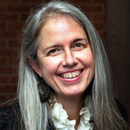“Let’s go right now”

Daily Scripture
Luke 2:15-20
15 When the angels returned to heaven, the shepherds said to each other, “Let’s go right now to Bethlehem and see what’s happened. Let’s confirm what the Lord has revealed to us.” 16 They went quickly and found Mary and Joseph, and the baby lying in the manger. 17 When they saw this, they reported what they had been told about this child. 18 Everyone who heard it was amazed at what the shepherds told them. 19 Mary committed these things to memory and considered them carefully. 20 The shepherds returned home, glorifying and praising God for all they had heard and seen. Everything happened just as they had been told.
Daily Reflection & Prayer
We noted yesterday that religious leaders looked down on shepherds. But later the chief priests and legal experts in Jerusalem were uninterested in the idea of a king born in Bethlehem (cf. Matthew 2:3-6), unlike the shepherds who were attentive, obedient and joyful. (No Jerusalem leader asked the magi, “Could we go with you?”) In another of God’s great reversals, Jesus would grow up to identify with shepherds, saying, “I am the good shepherd” (John 10:11).
- After hearing the angels’ song, the shepherds said, “Let’s go right now to Bethlehem and see what’s happened. Let’s confirm what the Lord has revealed to us.” How have you “confirmed” what you’ve learned “about” God? What rewards have you found in moving beyond an intellectual to a relational experience where you “taste and see” that Jesus is who he said he was?
- Pastor Bruce Larson wrote, “[Verse 20] says that after the shepherds had seen such wondrous things they went back to the commonplace. That’s true for us each year at Christmas as we celebrate these events. Where will we be when the excitement and fun are over? How do these events change the lives we lead back at our jobs, our homes, our schools?” * It’s December 26—Christmas is “over.” How will Christmas’ great news change your day-to-day life for the better?
Prayer
Lord Jesus, this has become a day for returning unwanted or ill-fitting gifts. I don’t ever want to return your gift of yourself. As I grow a relationship with you that “fits” better and better, help me to honor your coming as “the Christ child” every day. Amen.
GPS Insights

Amy Oden
Dr. Amy Oden is Professor of Early Church History and Spirituality, teaching at several seminaries. Teaching is her calling, and she looks forward to every day with students. Her latest book (Right Here, Right Now: The Practice of Christian Mindfulness, Abingdon Press, 2017) traces ancient mindfulness practice for Christians today.
We were first able to share this post for the day after Christmas in 2018.
The Luke passage makes me wonder: who are the shepherds in my life? Who are the people I might not even notice, who nevertheless have amazing news—first given to them by a messenger from God and then confirmed with their own eyes? Who are everyday people who have a witness about the amazing things God is doing in out-of-the-way, off-the-radar places every single day?
Jesus’ birth didn’t make the headlines in all the Jerusalem papers and cable news shows. People were too busy with sideline analysis of the politically powerful. Their gaze was focused only on celebrity. The religious people completely missed God’s coming into the world in a manger. Most of them didn’t even know any shepherds personally.
But neither do I. Do I see the shepherds in my life? Hear them? Do I pay attention or do I miss it? When I am able to hear it, do I receive it with wonder and praise? Or do I scoff, ignore it? Maybe my shepherds are the people recently released from incarceration who are making positive and permanent change in their lives. Or a child helping a friend who’s been sick or injured. Surely there are many, many shepherds with untold stories of the Holy One inbreaking into our lives each day.
The day after Christmas, when the excitement is over and we return to everyday life, the shepherds are just now beginning to tell their story, the amazing news of what they have seen and heard, “good news to you—wonderful, joyous news for all people” (v. 10). This good news is God’s coming into the world—not in a chariot, not at the microphone of a press conference, but in an out-of-the-way, off-the-radar shelter for animals, with illiterate field workers in charge of spreading the good news. God is coming into the world this very day. I pray that I will see and hear the shepherds in my life!
© 2025 Resurrection: A United Methodist Church. All Rights Reserved.
Scripture quotations are taken from The Common English Bible ©2011. Used by permission. All rights reserved.
References
* Bruce Larson, The Preacher’s Commentary Series, Volume 26: Luke. Nashville: Word, Inc., 1983, p. 52.
